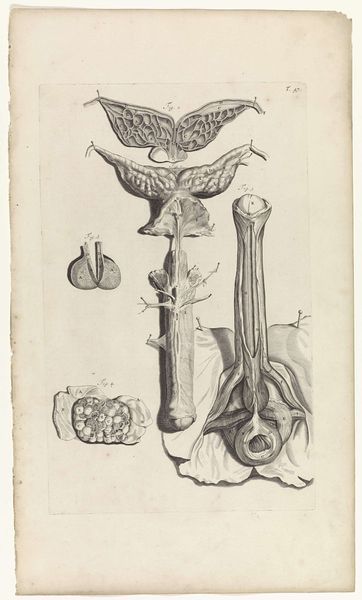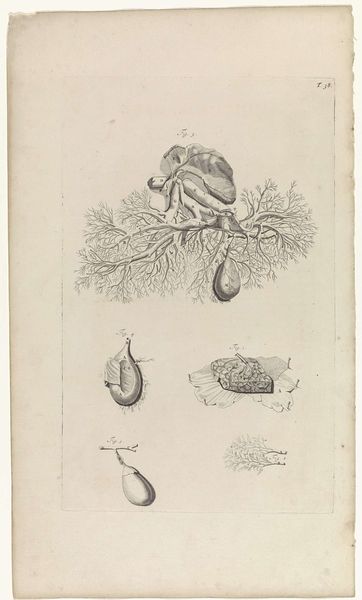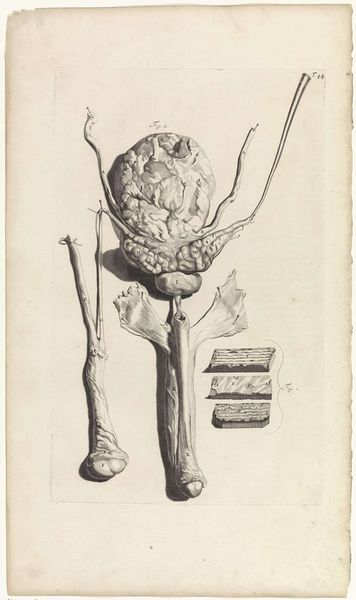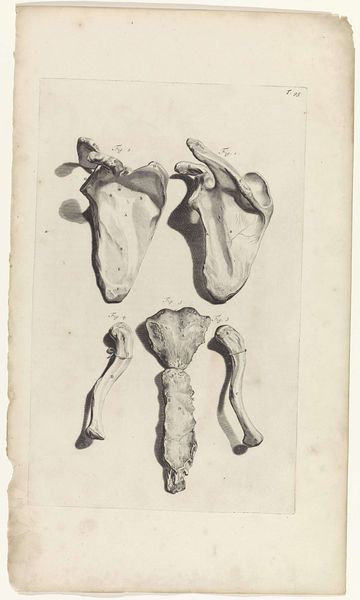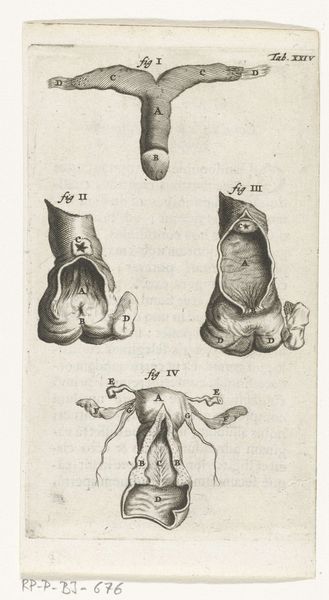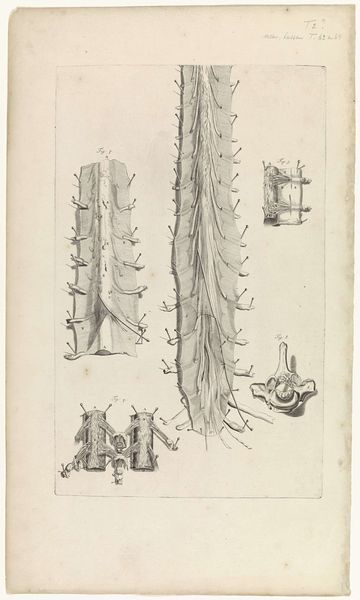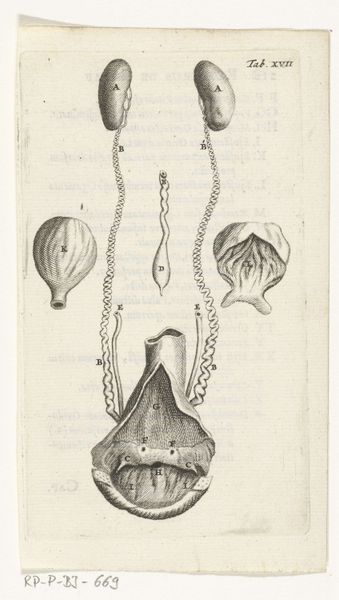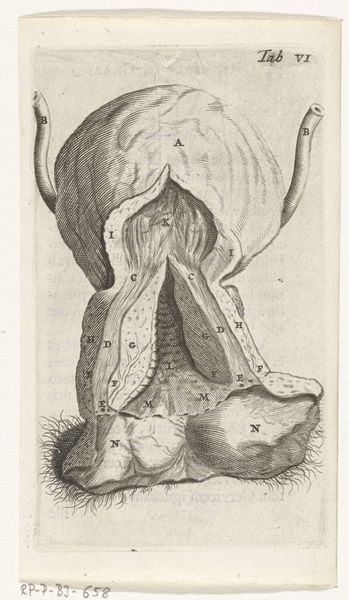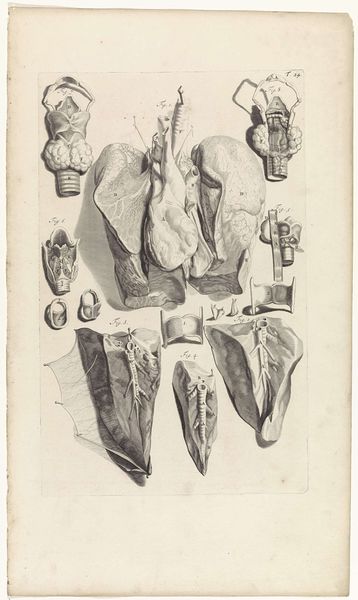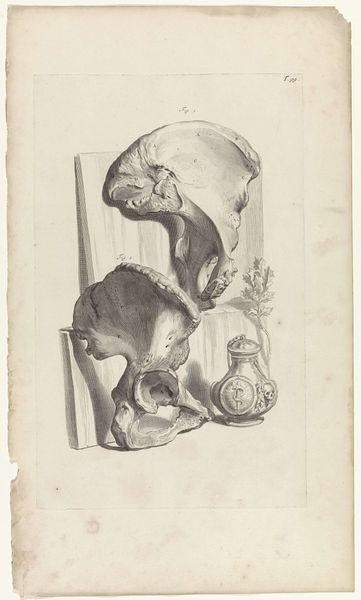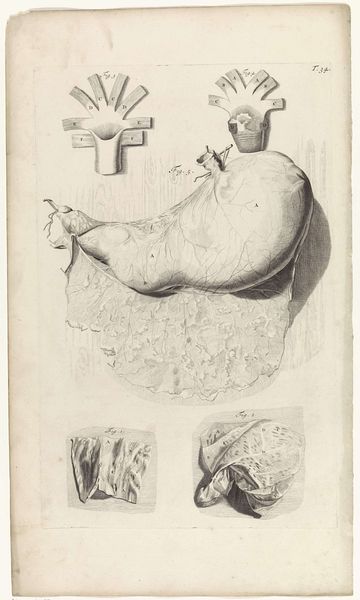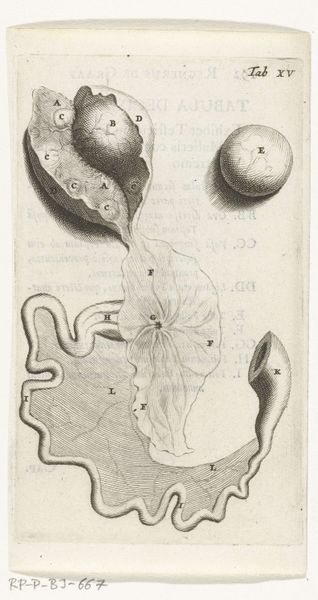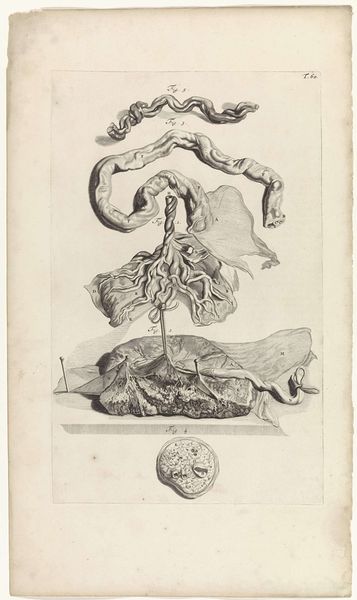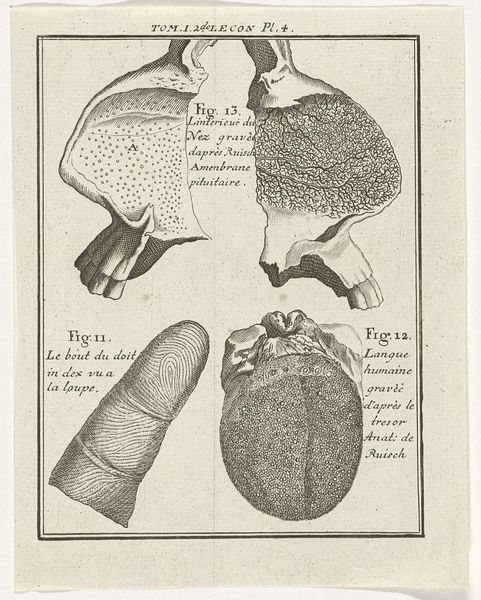
drawing, print, engraving
#
drawing
#
baroque
# print
#
history-painting
#
engraving
#
realism
Dimensions: width 335 mm, height 482 mm
Copyright: Rijks Museum: Open Domain
This is an anatomical study of the penis and bladder, made by Pieter van Gunst, sometime before 1724. It is an engraving: a method of printmaking that involves incising an image onto a metal plate, inking it, and then pressing it onto paper. Consider the labor involved in creating such a print. The engraver needed not only artistic skill, but also a deep understanding of human anatomy. The lines are precise, each one carefully cut into the metal. You can almost feel the pressure of the engraver's hand as they worked. The final print, then, is a testament to both scientific knowledge and manual dexterity. Engravings like this weren't just works of art; they were also tools for education and scientific progress. They allowed knowledge to be disseminated widely, contributing to a broader understanding of the human body. Looking at this print, we can see the convergence of art, science, and labor. It challenges our conventional art categories, urging us to appreciate the skill and knowledge embedded in its production.
Comments
No comments
Be the first to comment and join the conversation on the ultimate creative platform.
